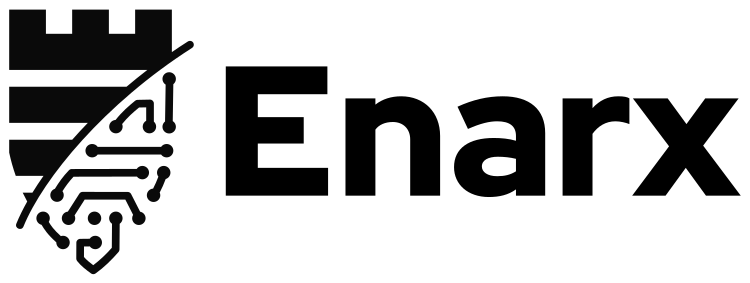[163, 100, 116, 121, 112, 101, 104, 115, 99, 104, 101, 100, 117, 108, 101, 101, 103, 114, 97, 112, 104, 164, 101, 110, 111, 100, 101, 115, 130, 164, 100, 110, 97, 109, 101, 98, 104, 105, 100, 107, 105, 110, 100, 162, 100, 116, 121, 112, 101, 102, 117, 110, 100, 117, 109, 112, 99, 100, 97, 116, 163, 100, 116, 121, 112, 101, 103, 114, 101, 103, 117, 108, 97, 114, 106, 101, 120, 101, 99, 117, 116, 97, 98, 108, 101, 245, 104, 99, 111, 110, 116, 101, 110, 116, 115, 135, 24, 101, 24, 99, 24, 104, 24, 111, 24, 32, 24, 72, 24, 105, 102, 108, 111, 103, 116, 97, 103, 1, 100, 114, 101, 115, 116, 246, 164, 100, 110, 97, 109, 101, 102, 117, 115, 101, 32, 104, 105, 100, 107, 105, 110, 100, 163, 100, 116, 121, 112, 101, 99, 114, 117, 110, 103, 99, 111, 109, 109, 97, 110, 100, 130, 129, 161, 102, 83, 116, 114, 105, 110, 103, 100, 98, 97, 115, 104, 129, 161, 107, 80, 108, 97, 99, 101, 104, 111, 108, 100, 101, 114, 101, 104, 105, 105, 110, 112, 100, 101, 110, 118, 115, 160, 102, 108, 111, 103, 116, 97, 103, 2, 100, 114, 101, 115, 116, 246, 106, 110, 111, 100, 101, 95, 104, 111, 108, 101, 115, 128, 109, 101, 100, 103, 101, 95, 112, 114, 111, 112, 101, 114, 116, 121, 104, 100, 105, 114, 101, 99, 116, 101, 100, 101, 101, 100, 103, 101, 115, 129, 131, 1, 0, 161, 107, 80, 108, 97, 99, 101, 104, 111, 108, 100, 101, 114, 101, 104, 105, 105, 110, 112, 110, 97, 116, 116, 97, 99, 104, 95, 116, 111, 95, 108, 111, 103, 115, 245]
cbor dump into Value, then serialized with print!("{:#?}", val)
Map(
[
(
Text(
"type",
),
Text(
"schedule",
),
),
(
Text(
"graph",
),
Map(
[
(
Text(
"nodes",
),
Array(
[
Map(
[
(
Text(
"name",
),
Text(
"hi",
),
),
(
Text(
"kind",
),
Map(
[
(
Text(
"type",
),
Text(
"undump",
),
),
(
Text(
"dat",
),
Map(
[
(
Text(
"type",
),
Text(
"regular",
),
),
(
Text(
"executable",
),
Bool(
true,
),
),
(
Text(
"contents",
),
Array(
[
Integer(
Integer(
101,
),
),
Integer(
Integer(
99,
),
),
Integer(
Integer(
104,
),
),
Integer(
Integer(
111,
),
),
Integer(
Integer(
32,
),
),
Integer(
Integer(
72,
),
),
Integer(
Integer(
105,
),
),
],
),
),
],
),
),
],
),
),
(
Text(
"logtag",
),
Integer(
Integer(
1,
),
),
),
(
Text(
"rest",
),
Null,
),
],
),
Map(
[
(
Text(
"name",
),
Text(
"use hi",
),
),
(
Text(
"kind",
),
Map(
[
(
Text(
"type",
),
Text(
"run",
),
),
(
Text(
"command",
),
Array(
[
Array(
[
Map(
[
(
Text(
"String",
),
Text(
"bash",
),
),
],
),
],
),
Array(
[
Map(
[
(
Text(
"Placeholder",
),
Text(
"hiinp",
),
),
],
),
],
),
],
),
),
(
Text(
"envs",
),
Map(
[],
),
),
],
),
),
(
Text(
"logtag",
),
Integer(
Integer(
2,
),
),
),
(
Text(
"rest",
),
Null,
),
],
),
],
),
),
(
Text(
"node_holes",
),
Array(
[],
),
),
(
Text(
"edge_property",
),
Text(
"directed",
),
),
(
Text(
"edges",
),
Array(
[
Array(
[
Integer(
Integer(
1,
),
),
Integer(
Integer(
0,
),
),
Map(
[
(
Text(
"Placeholder",
),
Text(
"hiinp",
),
),
],
),
],
),
],
),
),
],
),
),
(
Text(
"attach_to_logs",
),
Bool(
true,
),
),
],
)




